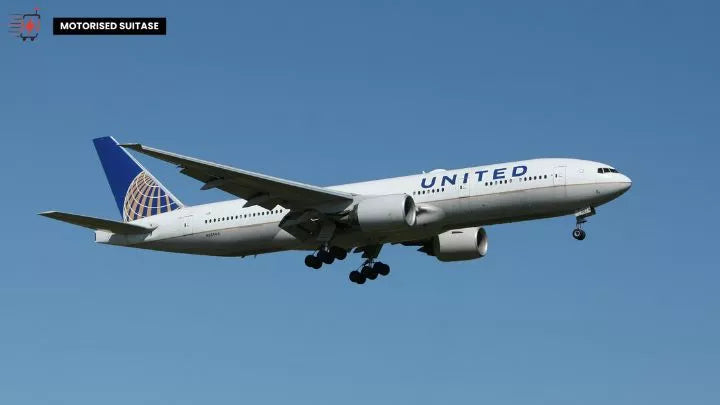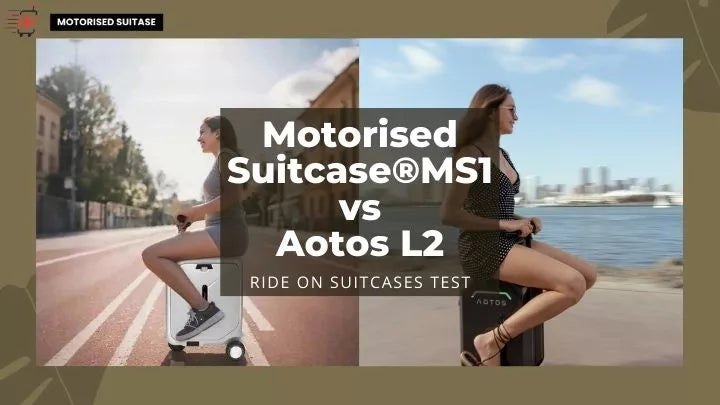Electric Suitcase On Air
Can You Bring an Electric Suitcase on a Plane?
When it comes to packing your "smart" or electric suitcase for a flight, the most important thing to know is the rule about the lithium battery inside. U.S. federal agencies and airlines have made it clear: smart luggage is allowed if the battery is removable, but it's a big no if the battery is built-in and can't be taken out.
FAA and TSA Rules for Smart Luggage
Both the Federal Aviation Administration (FAA) and the Transportation Security Administration (TSA) have specific guidelines for smart luggage. The key takeaway? The suitcase is fine, but the battery must be removable.
Here's exactly what the TSA says on its official website:
"Smart Luggage:
- Carry-On Bags: Yes (Special Instructions).
- Checked Bags: Yes."
Carry-On vs. Checked Baggage Restrictions
Most airlines follow a similar rule: you can bring your smart suitcase as a carry-on if the battery is removable. If you need to check the bag, you must take the battery out and keep it with you in the cabin. Bags with non-removable batteries are simply not accepted.
For example, American Airlines explains it like this:
"You can travel with these bags as a carry-on if the battery is removable. If the bag needs to be checked or valeted, you must remove the battery and carry it with you. Bags with non-removable batteries won't be accepted."
Can You Ride an Electric Suitcase in the Airport?
Most U.S. Airports do not allow passengers to ride electric suitcases inside terminals, on sidewalks, or on airport roadways. These rules are meant to keep walking areas safe and avoid accidents in crowded spaces. While smart luggage with removable batteries may be accepted for travel, actually riding your suitcase is usually restricted.
Airports with Explicit Riding Bans
Los Angeles International Airport (LAX)
LAX is one of the largest and busiest airports in the U.S., and it has very clear rules against riding personal transportation devices inside the airport. This includes electric ride-on suitcases.
Official LAX rule states:
"Bicycles, skateboards, hoverboards, rollerblades/skates, scooters, ridable luggage, and/or other personal transportation devices, excluding those necessary for medical purposes, are prohibited from operating on any airport inbound or outbound roadway, terminal roadways, sidewalks, or within terminal buildings except as explicitly permitted by the General Manager."
Source: Los Angeles World Airports (LAX)
Manassas Regional Airport (Virginia)
Smaller airports also publish similar rules. Manassas Regional Airport in Virginia, for example, bans riding of scooters, hoverboards, and rideable luggage on its runways, taxiways, or aprons.
The airport regulation states:
"No person shall operate a bicycle (electric or non-electric), scooter, moped personal assistive mobility device, motorized skateboard, hover board or similar vehicle on any Runway, Taxiway, Taxilane, or Apron without prior permission of the Director. Strollers and wheelchairs can be used for their intended purpose as a means of transporting children and individuals from landside to airside."
Source: Manassas Regional Airport Rules & Regulations
This means electric suitcases are treated the same way as scooters and cannot be used for riding inside the airport area.

Airports with Clear Restrictions
Even if some airports do not mention “ride-on luggage” by name, U.S. federal authorities such as FAA and TSA have related guidance that affects how electric luggage can be used and transported.
FAA (Federal Aviation Administration)
The FAA is all about battery safety. If your suitcase has a lithium battery, it has to be removable. Once you take it out, you have to carry it in the cabin, just like any other spare battery.
"Bags must be carried as carry-on bags unless the batteries can be removed from the baggage. Removed batteries must be carried in accordance to the same restrictions as spare batteries."
TSA (Transportation Security Administration)
The TSA also has rules for smart luggage. They allow it as both carry-on and checked baggage, but with special instructions.
"Smart Luggage:
- Carry-On Bags: Yes (Special Instructions)
- Checked Bags: Yes"
Again, these rules are about transporting the bag, not riding it. Riding your suitcase inside the airport is generally not a supported use.
Airline Policies on Smart Luggage
Policies can vary from one airline to the next. Here’s a quick look at what some of the major U.S. carriers have to say.
American Airlines
American Airlines allows smart luggage, but only if the battery can be taken out. If the bag goes in the cargo hold, you must carry the battery with you.
"You can travel with these bags as a carry-on if the battery is removable. If the bag needs to be checked or valeted, you must remove the battery and carry it with you. Bags with non-removable batteries won't be accepted."
Delta Airlines
Delta has one of the strictest policies. They completely ban smart luggage with non-removable batteries.
"Please note Delta Air Lines does not accept smart bags with non-removable lithium batteries. These items are prohibited as both carry-on and checked baggage on all mainline Delta and Delta Connection flights."
United Airlines
United Airlines accepts smart luggage, but you need to remove the battery before you check in or board.
"Smart bags usually have an integrated lithium battery to power its features. The battery must be removable. Take it out before checking your bag or bringing it on board."

Southwest Airlines
Southwest pays extra attention to portable chargers and power banks. They must be visible and cannot be placed inside the overhead bin while charging.
"When a portable charger/power bank is used during a flight, it must be out of any baggage and remain in plain sight. Do not charge devices in the overhead bin."

Alaska Airlines
Alaska bans bags where the battery cannot be removed and is designed to charge other devices.
"Baggage where the lithium battery is designed to charge other devices and cannot be removed is forbidden for carriage."

Spirit Airlines
Spirit’s rules say batteries are generally allowed but with exceptions, so travelers should check before flying.
"Installed and Spares – Yes, with exceptions."

Frontier Airlines
Frontier is clear: the battery must be removable, under 100Wh, and in good condition. Otherwise, the bag is not allowed.
"Smart bags are not allowed if:
- The battery cannot be removed
- The battery exceeds 100 watt-hours (Wh)
- The battery shows any signs of damage or defect"

JetBlue
JetBlue requires that spare batteries must stay in carry-on bags and cannot go into checked luggage. If you gate-check your bag, you must remove the battery.
"Spare lithium cells and batteries for these devices will only be accepted in carry-on bags and are prohibited in checked bags. When a carry-on bag is checked at the gate or at planeside, all spare lithium batteries must be removed from the bag and kept with the customer in the aircraft cabin."

Airline Smart Luggage Policy Summary
Since every airline has its own rules, it can be confusing for travelers. To make it easier, here is a quick comparison of the major U.S. airlines and their policies on electric or smart suitcases.
| Airline | Allowed in Carry-On | Allowed in Checked Bags | Special Notes |
| American Airlines | Yes, if battery is removable | Yes, but battery must be removed and carried in cabin | Non-removable batteries not accepted |
| Delta Air Lines | No, if battery is non-removable | No, if battery is non-removable | Strict ban on non-removable lithium batteries |
| United Airlines | Yes, but battery must be removed | Yes, but battery must be removed | Battery must always be removable |
| Southwest Airlines | Yes, but power banks must be visible | Yes | Charging in overhead bins not allowed |
| Alaska Airlines | Yes, if battery can be removed | No, if battery is built-in | Bags with non-removable batteries are forbidden |
| Spirit Airlines | Yes, with exceptions | Yes, with exceptions | Travelers should confirm case-by-case |
| Frontier Airlines | Yes, if battery is removable and <100Wh | Yes, under same conditions | No damaged or defective batteries |
| JetBlue | Yes, but spares only in carry-on | No | Must remove spare batteries if bag is gate-checked |
Electric Suitcase on the Road
Is an Electric Suitcase Considered an E-Scooter?
No, an electric suitcase is not legally classified as an e-scooter. It is considered a portable electric device, which means it does not fall under the same regulations as electric scooters. According to the U.S. Department of Transportation, it is treated differently from motorized scooters or bicycles.
Can You Ride an Electric Suitcase on Public Roads?
No. Since an electric suitcase cannot be legally defined as an e-scooter, it cannot be used on public roads like an e-scooter. Public road rules allow electric bicycles and scooters only in designated areas such as park roads, parking areas, and administrative trails open to bicycles. These areas are set by authorities, and signs or notices must indicate where electric vehicles are allowed.
Where Can You Ride an Electric Suitcase Safely?
Electric suitcases are generally not allowed on public roads because they do not meet the legal definition of e-scooters. However, there are safe alternatives where they can be used without breaking the law. These areas include private property and certain closed venues or designated zones.
- Private Property: This includes home yards or inside residential communities (if allowed by community rules), private parking lots, or warehouses.
- Closed Venues or Designated Areas: Some tech parks, resorts, or amusement areas may allow riding in limited zones. Theme parks or resorts offering experience zones can provide safe spaces for use.
Do You Need a License to Ride an Electric Suitcase?
No, a driver’s license is not required to operate an electric suitcase. Since it is not legally classified as an e-scooter, it cannot be used on most public roads, even if a license is held. Electric suitcases are best used in private or controlled spaces where riding is allowed. By contrast, many e-scooters that meet state regulations do not require a license for operation on public roads.
E-Scooter Laws by State
Here’s a brief overview of how some states define and regulate e-scooters. While electric suitcases are not legally classified as e-scooters, if you were to consider riding one on public roads, these state rules provide a useful reference. Each state sets its own limits on speed, weight, and where these devices can be used.
California
California defines a motorized scooter with strict limits on weight, width, and speed. Electric suitcases do not meet this definition.
"motorized scooter" is a two- or three-wheeled device that has handlebars, has either a floorboard that is designed to be stood upon when riding or a seat and footrests in place of the floorboard, has a maximum weight of 200 pounds and maximum width of four feet, and is powered by an electric motor that ceases to provide power when the scooter achieves 20 miles per hour. This device may also be designed to be powered by human propulsion. For purposes of this section, a motorcycle, as defined in Section 400, a motor-driven cycle, as defined in Section 405, or a motorized bicycle or moped, as defined in Section 406, is not a motorized scooter."
Texas
Texas allows motor-assisted scooters on roads with speed limits up to 35 mph, with local authorities able to impose further restrictions.
"Sec. 551.352. OPERATION ON ROADWAYS OR SIDEWALKS. (a) A motor-assisted scooter may be operated only on a street or highway for which the posted speed limit is 35 miles per hour or less. The motor-assisted scooter may cross a road or street at an intersection where the road or street has a posted speed limit of more than 35 miles per hour."
Source: Texas Statutes, Sec. 551.352

Florida
Florida limits motorized scooters to three wheels and a maximum speed of 20 mph; electric bicycles are excluded.
"MOTORIZED SCOOTER.—Any vehicle or micromobility device that is powered by a motor with or without a seat or saddle for the use of the rider, which is designed to travel on not more than three wheels, and which is not capable of propelling the vehicle at a speed greater than 20 miles per hour on level ground. The term does not include an electric bicycle."
Source: Florida Statutes, 316.003
New York
Electric scooters in NY have a 20 mph speed limit; exceeding 15 mph is illegal.
"Electric scooter - a type of device with handlebars, a floorboard or a seat that can be stood or sat upon by the operator, and an electric motor that can be powered by the electric motor and/or human power. Electric scooters have a maximum speed of no more than twenty miles per hour on a paved level surface when powered solely by the electric motor. Note: It is illegal to operate an electric scooter (as defined in §114-e of NYS VTL) in excess of fifteen miles per hour."

Colorado
Colorado defines electric scooters with weights under 100 pounds and speed limits of 20 mph; local laws cannot be more restrictive than class 1 e-bikes.
"Electric scooters. An electric scooter is defined as a device:
- weighing less than 100 pounds;
- with handlebars and an electric motor;
- that is powered by an electric motor;
- And that has a maximum speed of 20 miles per hour on a paved level surface when powered solely by the electric motor.
Local laws pertaining to electric scooters must be no more restrictive than those pertaining to class 1 electric bicycles."
Source: Colorado State Government
Washington
Washington sets 20 mph speed limits and prohibits scooters on sidewalks and limited-access highways; riding allowed where bicycles are permitted.
- "Cannot exceed 20 mph on level ground.
- Motorized foot scooters may not be operated at any time from a half hour after sunset to a half hour before sunrise without reflectors.
- Cannot be ridden on sidewalks.
- Cannot be operated on a fully controlled limited access highway.
- They may be operated most places bicycles are allowed such as multipurpose trails or bicycle lanes, provided “motorized vehicles” are not prohibited.
- A state agency or local government or municipalities may regulate the operation of an EPAMD and motorized foot scooter within the boundaries under their jurisdiction and control, including any area used for recreation, open space, habitat, trails, or conservation purposes."
Source: Washington RCW 46.20.500, 46.61.710
Illinois
Illinois limits low-speed electric scooters to 100 pounds and 20 mph, excluding mopeds and motorcycles.
"Low-speed electric scooter. A device weighing less than 100 pounds, with 2 or 3 wheels, handlebars, and a floorboard that can be stood upon while riding, that is solely powered by an electric motor and human power, and whose maximum speed, with or without human propulsion on a paved level surface, is no more than 20 miles per hour. "Low-speed electric scooter" does not include a moped, motor-driven cycle, motor vehicle, or vehicle."
State E-Scooter Regulations
Although electric suitcases are not legally classified as e-scooters, state laws for e-scooters provide a useful reference for understanding limits on speed, weight, and where motorized personal devices can be used. The table below summarizes key regulations in several states.
|
State
|
Max Speed
|
Max Weight
|
Wheels
|
Usage Notes
|
|
California
|
20 mph
|
200 lbs
|
2–3
|
Must have handlebars and floorboards or seats; it can't be a motorcycle, moped, or motor-driven cycle
|
|
Texas
|
35 mph on roads ≤35 mph
|
Not specified
|
2–3
|
Counties/municipalities may further restrict usage; may cross faster roads at intersections
|
|
Florida
|
20 mph
|
Not specified
|
≤3
|
Excludes electric bicycles; must be motor-powered
|
|
New York
|
20 mph (electric motor), illegal >15 mph
|
Not specified
|
2–3
|
Handlebars and floorboard or seat required
|
|
Colorado
|
20 mph
|
<100 lbs
|
2–3
|
Local laws are no stricter than Class 1 e-bikes
|
|
Washington
|
20 mph
|
Not specified
|
2–3
|
Cannot ride on sidewalks or limited-access highways; allowed where bicycles are permitted
|
|
Illinois
|
20 mph
|
<100 lbs
|
2–3
|
Excludes mopeds, motorcycles, and motor vehicles
|
Where to Buy an Electric Suitcase in the US?
If you are interested in owning an electric suitcase, one of the most reliable options available in the US is Motorised Suitcase®. This brand focuses on practical design and safe riding, making it a trusted choice for travelers who want both mobility and convenience.
A standout model is the Motorised Suitcase® MS1, which combines carry-on functionality with ride-on capability. It is designed for smooth handling, ease of use, and a unique travel experience. For those looking to explore the next generation of smart luggage, the MS1 is a strong option to consider.
Ready to experience it for yourself? Visit Motorised Suitcase® to learn more and see where you can buy an electric suitcase in the US today.








Leave a comment
This site is protected by hCaptcha and the hCaptcha Privacy Policy and Terms of Service apply.